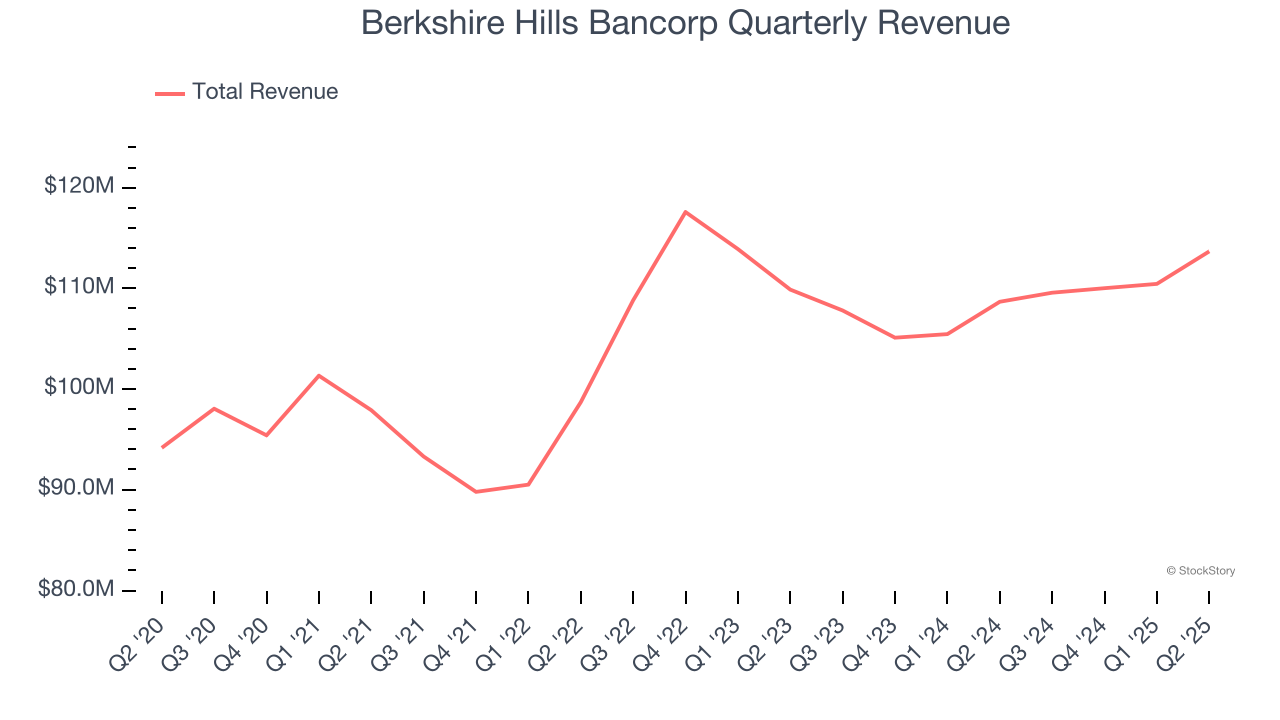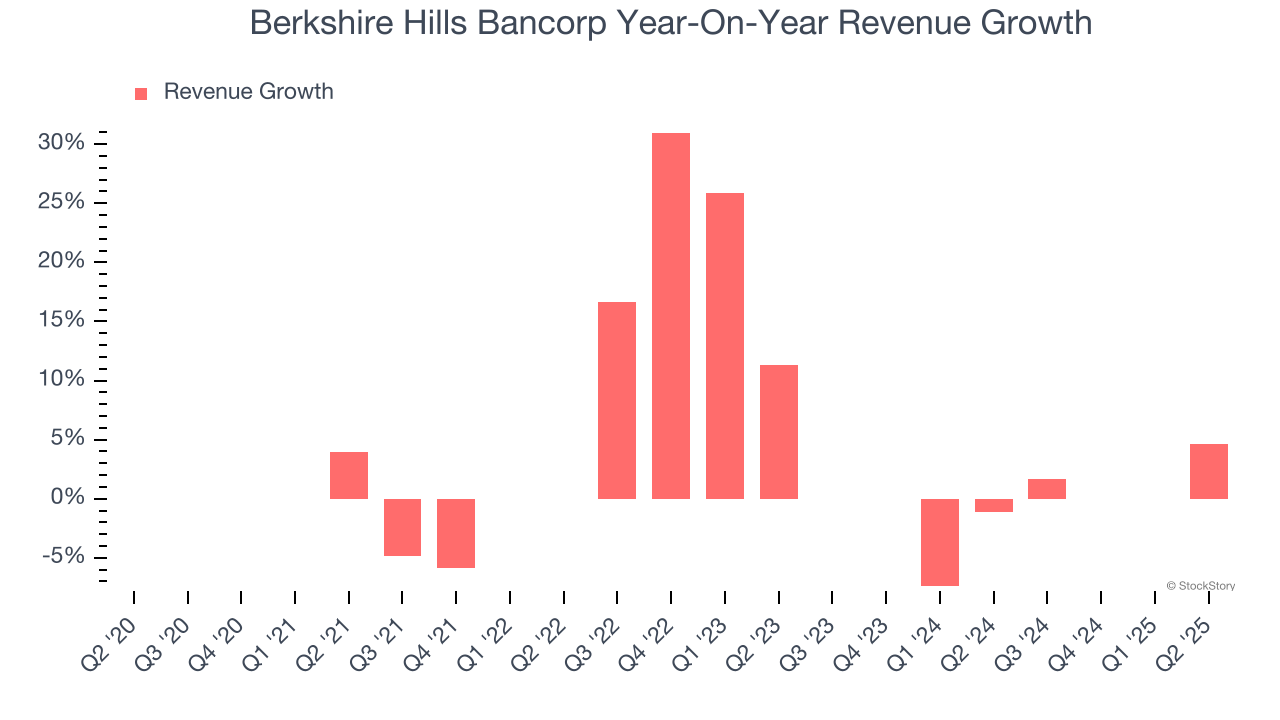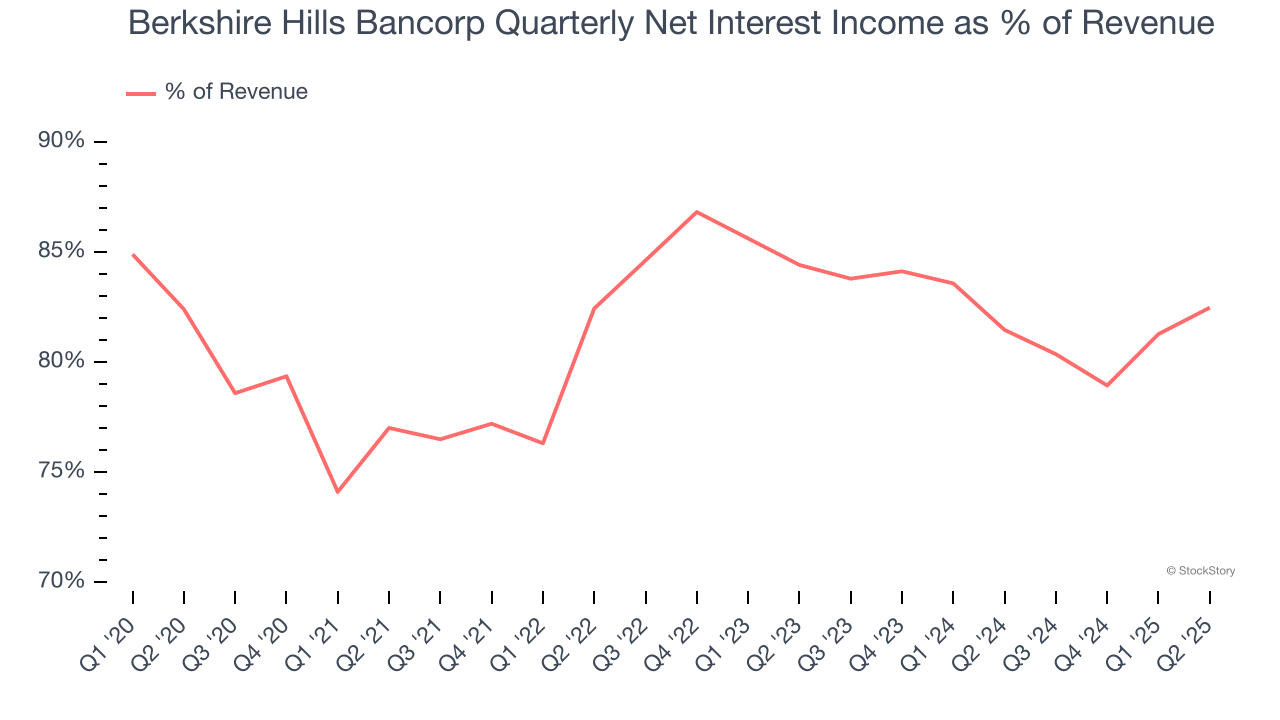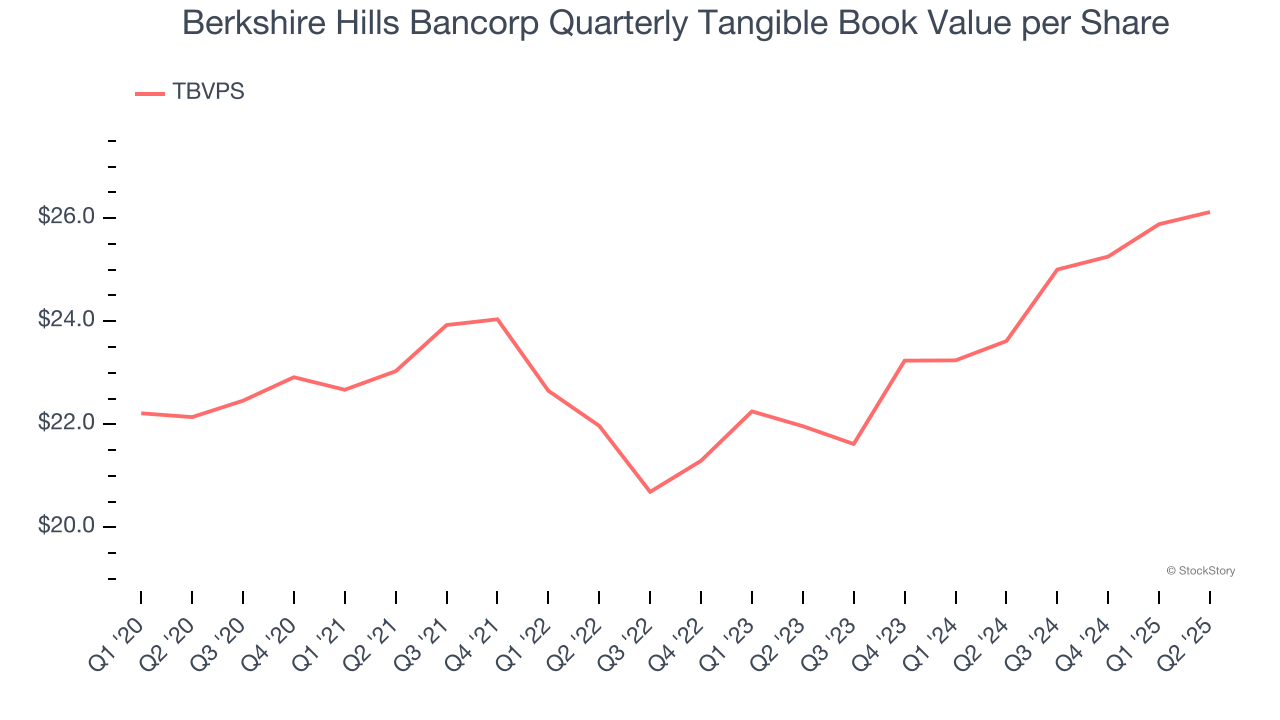
Regional bank holding company Berkshire Hills Bancorp (NYSE: BHLB) met Wall Street’s revenue expectations in Q2 CY2025, with sales up 4.6% year on year to $113.7 million. Its GAAP profit of $0.69 per share was 23.2% above analysts’ consensus estimates.
Is now the time to buy Berkshire Hills Bancorp? Find out by accessing our full research report, it’s free.
Berkshire Hills Bancorp (BHLB) Q2 CY2025 Highlights:
- Net Interest Income: $93.76 million vs analyst estimates of $93.71 million (5.9% year-on-year growth, in line)
- Net Interest Margin: 3.3% vs analyst estimates of 3.3% (7 basis point year-on-year increase, 4 bps miss)
- Revenue: $113.7 million vs analyst estimates of $113.3 million (4.6% year-on-year growth, in line)
- Efficiency Ratio: 56.7% vs analyst estimates of 61.9% (5.2 percentage point beat)
- EPS (GAAP): $0.69 vs analyst estimates of $0.56 (23.2% beat)
- Market Capitalization: $1.20 billion
Company Overview
Founded in 1846 as a community financial institution in Massachusetts, Berkshire Hills Bancorp (NYSE: BHLB) is a regional bank holding company that provides commercial banking, retail banking, wealth management, and lending services through branches across the Northeast.
Sales Growth
Two primary revenue streams drive bank earnings. While net interest income, which is earned by charging higher rates on loans than paid on deposits, forms the foundation, fee-based services across banking, credit, wealth management, and trading operations provide additional income.
Unfortunately, Berkshire Hills Bancorp struggled to consistently increase demand as its $443.7 million of revenue for the trailing 12 months was close to its revenue five years ago. This was below our standards and suggests it’s a lower quality business.

We at StockStory place the most emphasis on long-term growth, but within financials, a half-decade historical view may miss recent interest rate changes, market returns, and industry trends. Just like its five-year trend, Berkshire Hills Bancorp’s revenue over the last two years was flat, suggesting it is in a slump.  Note: Quarters not shown were determined to be outliers, impacted by outsized investment gains/losses that are not indicative of the recurring fundamentals of the business.
Note: Quarters not shown were determined to be outliers, impacted by outsized investment gains/losses that are not indicative of the recurring fundamentals of the business.
This quarter, Berkshire Hills Bancorp grew its revenue by 4.6% year on year, and its $113.7 million of revenue was in line with Wall Street’s estimates.
Net interest income made up 81% of the company’s total revenue during the last five years, meaning Berkshire Hills Bancorp barely relies on non-interest income to drive its overall growth.

While banks generate revenue from multiple sources, investors view net interest income as the cornerstone - its predictable, recurring characteristics stand in sharp contrast to the volatility of non-interest income.
Software is eating the world and there is virtually no industry left that has been untouched by it. That drives increasing demand for tools helping software developers do their jobs, whether it be monitoring critical cloud infrastructure, integrating audio and video functionality, or ensuring smooth content streaming. Click here to access a free report on our 3 favorite stocks to play this generational megatrend.
Tangible Book Value Per Share (TBVPS)
The balance sheet drives banking profitability since earnings flow from the spread between borrowing and lending rates. As such, valuations for these companies concentrate on capital strength and sustainable equity accumulation potential.
This is why we consider tangible book value per share (TBVPS) the most important metric to track for banks. TBVPS represents the real, liquid net worth per share of a bank, excluding intangible assets that have debatable value upon liquidation. EPS can become murky due to acquisition impacts or accounting flexibility around loan provisions, and TBVPS resists financial engineering manipulation.
Berkshire Hills Bancorp’s TBVPS grew at a tepid 3.4% annual clip over the last five years. However, TBVPS growth has accelerated recently, growing by 9.1% annually over the last two years from $21.96 to $26.12 per share.

Over the next 12 months, Consensus estimates call for Berkshire Hills Bancorp’s TBVPS to shrink by 12% to $22.98, a sour projection.
Key Takeaways from Berkshire Hills Bancorp’s Q2 Results
We were impressed by how significantly Berkshire Hills Bancorp blew past analysts’ EPS and efficiency ratio expectations this quarter. We were also happy its tangible book value per share narrowly outperformed Wall Street’s estimates. Overall, we think this was still a solid quarter with some key areas of upside. The market seemed to be hoping for more, and the stock traded down 1.6% to $25.78 immediately following the results.
So do we think Berkshire Hills Bancorp is an attractive buy at the current price? If you’re making that decision, you should consider the bigger picture of valuation, business qualities, as well as the latest earnings. We cover that in our actionable full research report which you can read here, it’s free.






